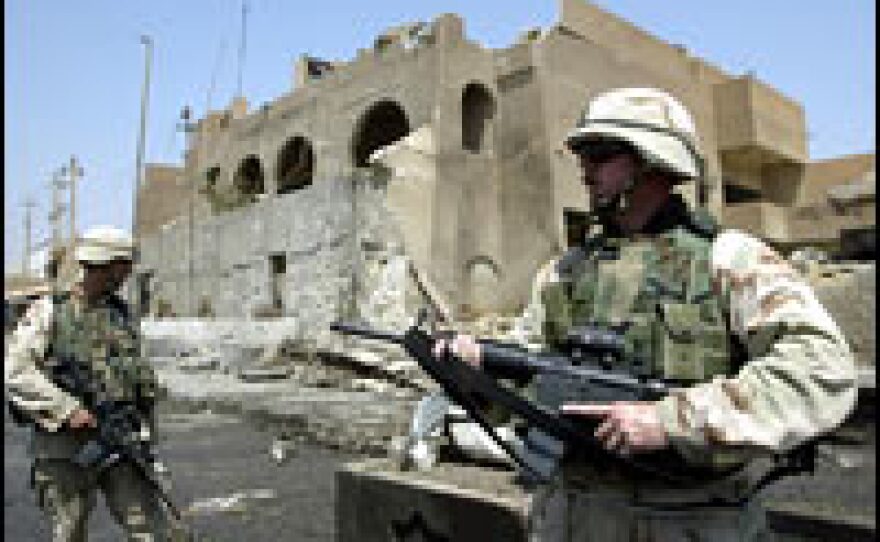The United States is urging Iraq's Arab neighbors to reopen their embassies in Baghdad. Most countries have refused to send ambassadors back to the Iraqi capital, because of poor security and political differences with the government of Prime Minister Nouri al-Maliki, a former U.S. diplomat says.
"This is a very, very dangerous place to be putting your diplomats," says David Mack, a former State Department official, now with the Middle East Institute in Washington, D.C. "As dangerous as it is for Americans, it's probably more dangerous for Arab diplomats.
"The Jordanian Embassy was one of the first international establishments that was attacked by terrorists," he says. And several Arab diplomats have been kidnapped or killed in terrorist incidents in Iraq, Mack notes.
But security isn't the only concern.
Ties with Iran Worry Iraq's Neighbors
"The Arab states, by and large, have considerable doubts about the Maliki government," Mack says. "They view it as being under very heavy Iranian influence, as being a rather narrow coalition of Shia Iraqi religious parties and the two principal Kurdish parties.
"They are struck by the fact that a lot of Iraqi diplomats that they were familiar with over previous years, who were either secular Shia or Sunni Arabs" are excluded from the current government, he says.
Mack says the Shia politicians who won in Iraq's January 2005 election "were closely identified with Iran ... in many cases had been exiled in Iran for a long period of time. Their parties and militia groups had received financial assistance, refuge, training [and] weapons from various elements of the Iranian political system."
But U.S. officials have argued that Arab governments are driving the Maliki government "into the arms of the Iranians, since [the Iraqis] don't have any other neighbors to turn to for support against the various militias and terrorist elements — both Shia and Sunni — that are attacking their government," Mack says.
"The Arabs are having difficulty deciding," he says. Not helping matters is the loss of integrity behind U.S. intelligence, which makes it tough to convince Arab governments about what's going on in Iraq, Mack adds.
Copyright 2022 NPR. To see more, visit https://www.npr.org. 9(MDAzMjM2NDYzMDEyMzc1Njk5NjAxNzY3OQ001))






